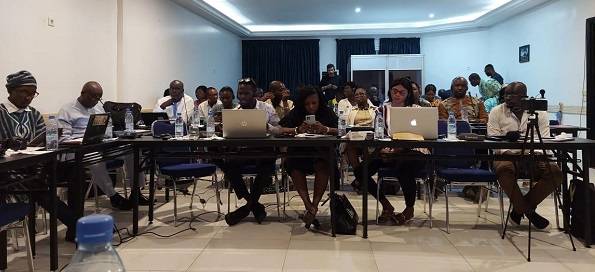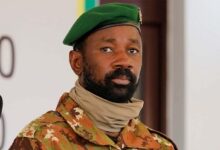
Speakers at a conflict resolution and minority conference in Darkar, Senegal, have urged journalists and the media to engage in ethical reporting, information sharing and in-depth analysis of migration issues to reverse massive migration from Africa to Europe.
They advocated for journalists to practice such reporting skills to ensure the public are not misinformed and migrants’ dignity and respect are not undermined.
Similarly, the speakers tasked journalists to remain balanced and independent in their reportage on migration issues, and collaborate with actors locally and internationally as they engage in aggressive advocacy on the negative effects of irregular migration to push governments and multilateral organisations to focus and address such issues.
Speaking at the conference, the Chairman of the Independent Media Commission in Sierra Leone, Dr Victor Massaquoi, stated that issues of migration, if not carefully addressed, may lead to a serious explosion in population in the countries, especially Africa, adding it could bring with it negative effects where socio-economic facilities in those countries may not be adequate to sustain the population.
He explained that many youths were leaving their countries through both irregular and regular routes to seek greener pastures in other countries due to lack of jobs and inadequate socio-economic facilities that were insufficient to address the socio-economic needs of the people, and stated that if not carefully addressed could cause problems for countries.
“For example, in 2004, Sierra Leone had a population of about 4.5 million people, but as at 2023 mid-term consensus conducted, it has grown to 8.2 million people and the number of people migrating from different countries to Ghana, Sierra Leone, and Nigeria keeps increasing,” he said.
To help tackle the issues related to migration, Dr Massaquoi noted that the media played a critical role both in bringing out the issues of migration internationally, nationally and at the regional level by educating all actors involved and bringing out possible solutions to reverse massive migration.
He revealed that over the years, international laws, treaties and policies on migration have been difficult to implement and blamed the situation on the lack of sincerity on the part of authorities responsible to implement such laws.
A Communication Consultant and Senior Investigative Journalist, Jacques Ngor Sarr, for his part, stated the need for journalists to sensitise government authorities on the need to create employment opportunities and training for their youth to prevent them from migrating to other countries.
He stated that most of the time programmes dedicated to returnee migrants in their home countries were not well conducted, revealing that sometimes funds allocated to them do not reach them, hence they get disappointed due to no solution and lack of support and they migrate to other countries again.”
He said there was the need for journalists to educate the authorities on ensuring that the migrants are supported to encourage them to stay, and also educate migrants on the dangers of engaging in irregular migration, where they take unapproved routes which could endanger their lives, and also urge them to explore legal ways of travelling.
The two-day conference for 60 journalists and rights activists from Ghana, Sierra Leone and Senegal was organised by Fahamu- Africa, a Pan-African organisation which supports movement of social justice, in partnership with Minority Rights Group International (MRGI), and supported by the European Union(EU).
FROM AMA TEKYIWAA AMPADU AGYEMAN, DAKAR, SENEGAL





